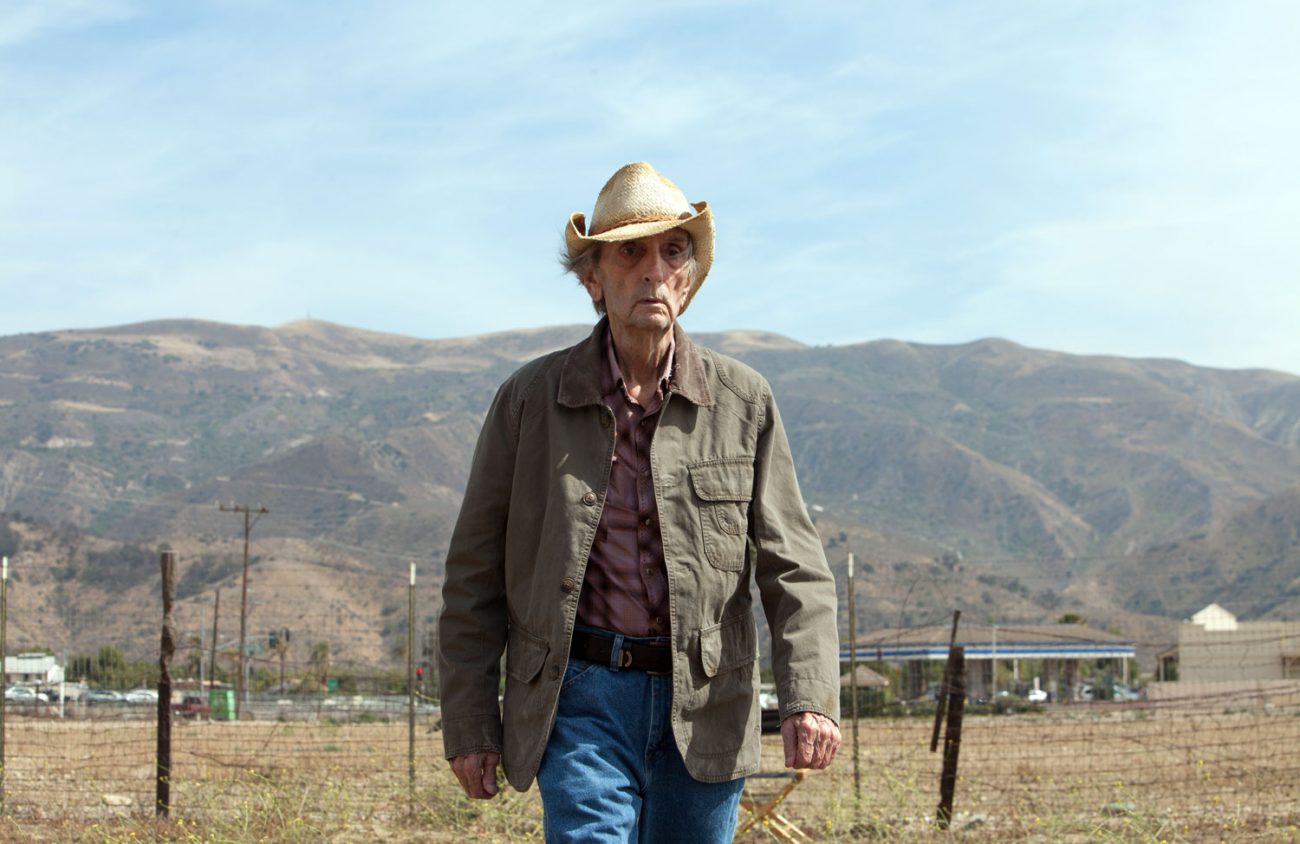“And if you gaze long enough into an abyss,” Nietzsche wrote, “the abyss also gazes into you.”
This, for me, perfectly describes the face of the late, great Hollywood actor Harry Dean Stanton, who died Sept. 15 at the impossible age of 91. A desiccated topography of defiant suffering and hard-bitten acceptance, Stanton’s visage — carved, craggy and truck-stop sad, with a twinkle of devious mirth — speaks to something at once glorious and damned about the human condition itself, and the American character in particular.
Stanton was old before he was old, and the elegant jerky of his face mirrored the oblivion he stared down right to the end, with a posture of gnarled resignation that puts a shiver to the illusions of permanence that sustain us.
A character actor for most of his career, Stanton got his start as a bit player in undistinguished oaters during the 1950s; in 1967, at the weather-beaten age of 41, he appeared alongside Paul Newman in Cool Hand Luke, and in 1973 he landed the role of Luke in Sam Peckinpah’s masterpiece Pat Garrett & Billy the Kid. In 1979 he played the mumbling mechanic Brett in Ridley Scott’s unlikely masterpiece, Alien; he was Bud in Alex Cox’s 1984 cult classic Repo Man; and that same year he scorched the screen as the drifter at the center of Wim Wenders’ Paris, Texas.
You get the idea. It would seem Stanton never took a stupid breath in his life, and, unlike a century of contemporaries who appeared, burned bright and then flamed out around him, he was cool without giving the least shit about being cool, content not simply to survive but to thrive with the patient, slow-smoldering ferocity of a man who realizes, deep down, that it all amounts to zip, so why not?
The tortoise wins the race, even if the race ends with our entry into the big nothing. The tortoise is the atheist’s answer to that nihilism forever threatening to swallow us, and it urges us, with an ecclesiastical shrug, to trudge on, because tomorrow we die.
A tortoise figures significantly into the new film Lucky, which now, with his recent death, qualifies as a bittersweet swan song to Stanton, not just the actor and the legend but the man himself. Directed by John Carroll Lynch (who played Marge Gunderson’s husband in Fargo), the movie is an arid and rambling portrait of a lifelong atheist confronting the reality of his impending demise. It has no discernable narrative; the movie is as meditative and arid as the American Southwest that is its setting. And it is beautiful.
Stanton, as Lucky, wanders through his days, which include a morning routine of yoga while his cigarette smolders in the ashtray; visits to a diner for coffee and a crossword; back home for some TV; and then a nightcap at the local bar, where he rubs shoulders with the locals, including his buddy Howard (David Lynch), whose pet tortoise President Roosevelt has disappeared. “There are some things in this universe, ladies and gentlemen, that are bigger than all of us,” Howard declares, “and a tortoise is one of them.” The symbolism is clear.
And that’s about it. Nothing happens, but everything happens, because Stanton — rebellious yet stricken with fear, and wrestling with the truth he refuses to let go of — is completely vulnerable on screen. Facing an eternity of non-being, he rejects the panacea of false hope, whether to reassure himself or others, and in this conviction he attains an aura of almost divine courage — a smiling melancholy that upends the meaninglessness of it all with a deep and abiding humanity. Stanton refuses to give an answer to the riddle of existence, which is an answer in itself.
In it own quiet, unpretentious way, Lucky confronts life’s most unavoidable truth —that death awaits us all — and in the process the film offers a funny, sad, moving portrait of one man’s struggle with his own impending mortality. Every time Lucky sees Joe (Barry Shabaka Henley), the owner of the diner he frequents, he greets him by saying, “You’re nothing.” To which Joe responds, grinning: “You’re nothing.”
Whether we see this as an expression of love, or an admission of despair, is simply a matter of perspective. (Broadway Metro)
